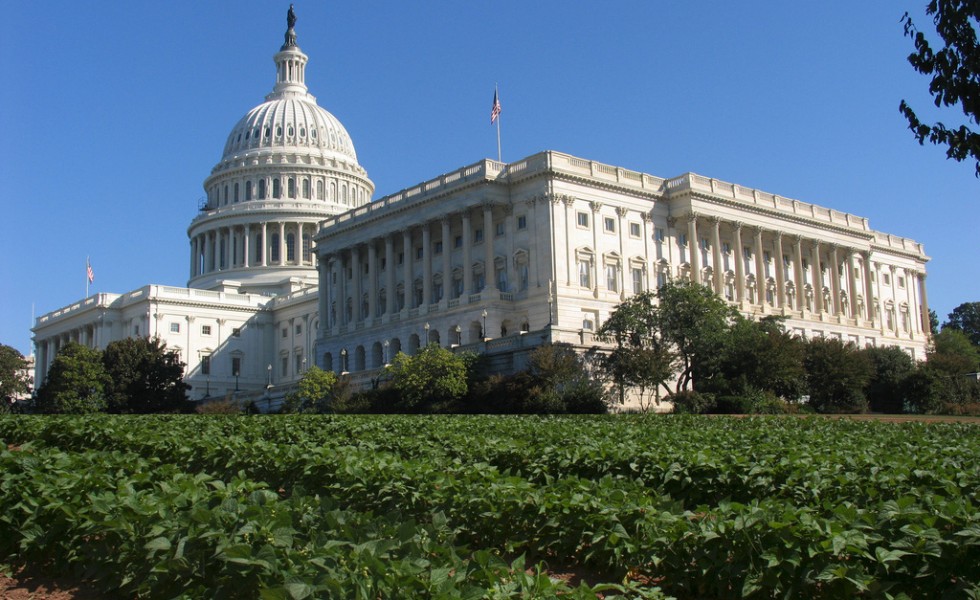The triumph of dumb
Posted on November 24, 2013

Somewhere along his long, winding way from Delaware to Indiana to Washington D.C., Bart Chilton picked up a desire for public service, a view that government should serve the powerful and powerless alike and a trusted way to bring people together to write straightforward, fair public policy.
Appointed in 2007 by President George W. Bush, Chilton began to serve a commissioner at the Commodity Futures Trading Commission just before the 2008 Wall Street meltdown. That fire was lit by financial derivatives the CFTC had no power to regulate.
Reappointed in 2009, Chilton quickly made himself a pain in the neck to too-big-to-fail banks, too-big-to-jail bankers and “cheetah” speculators the world over who claimed 2008 was a freak occurrence and that their in-the-dark derivatives markets needed no regulation.
He, and others, disagreed and, in 2010, Congress passed the Dodd-Frank reform law that put tough rules, stiff penalties and clear oversight—by the CFTC and others—in U.S. financial markets.
Its passage, however, began a high dollar lobbying and legal fight by the financial industry to challenge every comma, colon and apostrophe in the proposed rules to implement the law.
The battles, raging yet today, have become so bruising that three years after Dodd-Frank became law—and a full year since either of its authors, Sen. Christopher Dodd and Rep. Barney Frank, served in Congress—Dodd-Frank is still not in place.
Many of the fights have occurred in the Senate and House Agriculture committees because each holds oversight power on the CFTC.
For example, on Oct. 30, the House Ag Committee’s Ranking Member, Colin Peterson of Minnesota, spoke on the House floor against committee action to change Dodd-Frank provisions he said would “put taxpayers on the hook for big banks’ risky behavior.” His warning fell on deaf ears.
Chilton, too, has taken to the road to explain the benefits a tough Dodd-Frank law and the regulatory certainty and trust it would bring back to the marketplace.
The banks ain’t buying; they want fewer rules and, by implication, more room to create new products and profits.
Their actions, however, prove Chilton, Peterson and every financial watchdog correct: Weekly bank announcements showcase billion-dollar blunders and multi-billion dollar fines for market violations. (On Nov. 19, JP Morgan Chase agreed to pay the U.S. government $13 billion to settle shady mortgage dealings.)
But banks have plenty of politicians to offer cover. In mid-November, House Ag Committee Chairman Frank Lucas, OK, questioned the CFTC’s “latest move to regulate cross-border swaps”—another poorly understood financial instrument—because “(r)egulating without regard for how markets function is irresponsible…”
Not understanding—let alone not regulating—these opaque, complex markets is irresponsible.
In fact, looking the other way when everyone from London to Lincoln to Lisbon knows from experience that the $3-trillion-per-day global financial market is rife with unknown risk and well-known wrongdoing is not only irresponsible, it’s just plain dumb.
Regulators like CFTC’s Bart Chilton know that. Taxpayers like you and me know that. And, best guess, even politician/promoters like Frank Lucas knows that.
But dumb is the new smart. Dumb is what we do. Dumb reigns triumphant. And, sooner than later, dumb is gonna cost everyone big again.
Right now, though, dumb is driving thoughtful, smart public servants like Bart Chilton out of public service. On Nov. 5, after six years on the CFTC, Chilton announced that he had “sent a letter to the President expressing my intent to leave the Agency in the near future.”
If Chilton leaves by Jan. 1, as is expected, the six-member CFTC (five commissioners and a chairperson) will have but two members. Two. Think Dodd-Frank has any chance to move through the CFTC anytime in 2014?
Right. Dumb wins again.
Share This